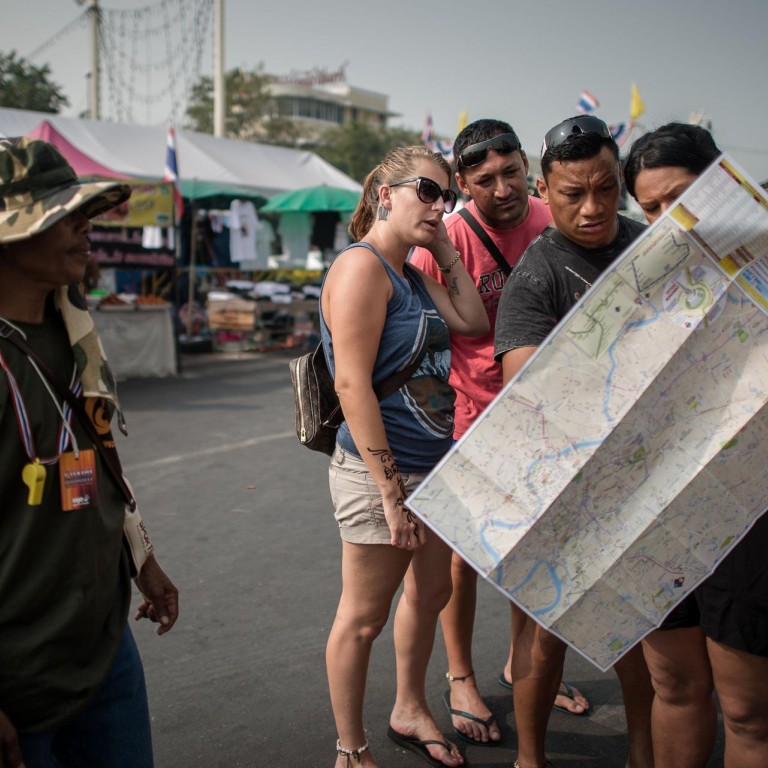
Thailand feels pinch as tourists avoid protests
Thousands of tourists avoid Bangkok as demonstrations against government drag on
From backpacker districts to high-end hotels, more than a month of opposition protests in the Thai capital are taking their toll on the kingdom's tourism sector, with hundreds of thousands of travellers staying away.
Dozens of countries have issued travel warnings related to the mass street demonstrations against Prime Minister Yingluck Shinawatra, mostly advising people to exercise caution near the main rally sites.
The political situation reduced the influx of inbound tourists in the month to mid-December by an estimated 300,000 people - 8 per cent - compared with the number expected, said Yutthachai Soonthronrattanavate, president of the Association of Domestic Travel.
"Entrepreneurs are concerned that the protests might not end before January or February," he said.
Risk-averse Asian holidaymakers are among those choosing to stay away because of the unrest.
Hong Kong travel agencies this month started cancelling package tours to Bangkok as the Security Bureau raised the travel threat level for the capital to red, the second-highest warning.
The protests - aimed at toppling Yingluck and curbing the influence of her older brother, ousted prime minister Thaksin Shinawatra - have left five dead and more than 200 wounded in street violence, although tensions have abated in recent days.
The political conflict broadly pits a Bangkok-based middle class and a royalist elite backed by the military against rural and working-class voters loyal to Thaksin, who was ousted in a military coup in 2006 and lives in self-exile.
The local business association for the Khao San Road backpacker district said early this month that more than 50 per cent of bookings for November and December had been cancelled as low-end tourists abandoned their Thailand trip or went elsewhere in the country.
High-end hotel chains, including the Mandarin Oriental and the Accor group, said they had experienced cancellations.
Yet many travellers, particularly those from Europe and North America, are unfazed by - or unaware of - the crisis.
"I didn't know about it. Friends at home saw the news and warned me. When I arrived there were riots going on. I was quite naive," said Alex Young, 23, as she ordered a cocktail at a bar on Khao San Road, while protesters gathered at the nearby Democracy Monument.
Her travelling companion, Hannah Steenson, 24, hails from Northern Ireland and was unruffled. "We're used to bomb scares there," she said, but added that Khao San Road was quieter than when she visited last year.
Local businesses said they had noticed the impact of the protests - with many expressing frustration at the effects of the protracted political crisis.
"Last year, every weekend was party day. Now even Friday and Saturday are quiet. Every business is the same - no customers," said Noom Manachai, manager of the Hippie De Bar restaurant on Khao San Road.
Many of the key rally sites are just minutes from major tourist attractions in the city's historic district.
Asia-wide, tourist industry recoveries from high-profile shocks - such as disease outbreaks, the Japanese tsunami and the Philippine typhoon - are speeding up, experts say.
"While events can quickly displace business, the bounce-back time is shortening," said Bill Barnett, managing director of tourism consultancy C9 Hotelworks.
"What's hard for Thailand at present is the shroud of uncertainty that hangs over Brand Bangkok."
The kingdom attracted a record 22 million tourists last year. Its popularity has endured several episodes of civil strife.
